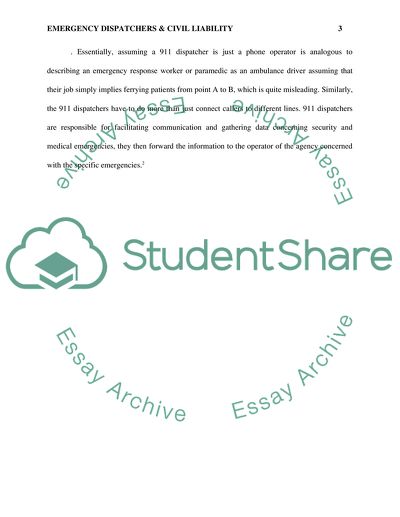Cite this document
(Standard Practice for Emergency Medical Dispatch Management Research Paper, n.d.)
Standard Practice for Emergency Medical Dispatch Management Research Paper. Retrieved from https://studentshare.org/health-sciences-medicine/1809792-emergency-dispatchers-civil-liability
Standard Practice for Emergency Medical Dispatch Management Research Paper. Retrieved from https://studentshare.org/health-sciences-medicine/1809792-emergency-dispatchers-civil-liability
(Standard Practice for Emergency Medical Dispatch Management Research Paper)
Standard Practice for Emergency Medical Dispatch Management Research Paper. https://studentshare.org/health-sciences-medicine/1809792-emergency-dispatchers-civil-liability.
Standard Practice for Emergency Medical Dispatch Management Research Paper. https://studentshare.org/health-sciences-medicine/1809792-emergency-dispatchers-civil-liability.
“Standard Practice for Emergency Medical Dispatch Management Research Paper”, n.d. https://studentshare.org/health-sciences-medicine/1809792-emergency-dispatchers-civil-liability.


